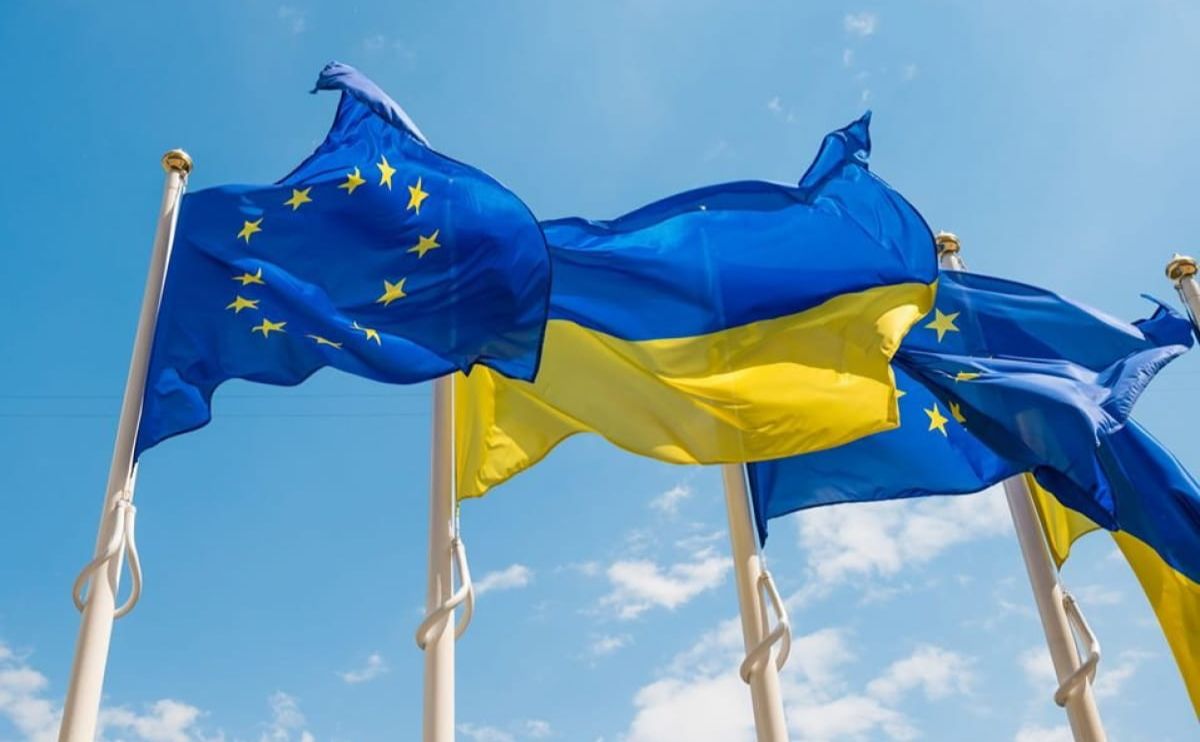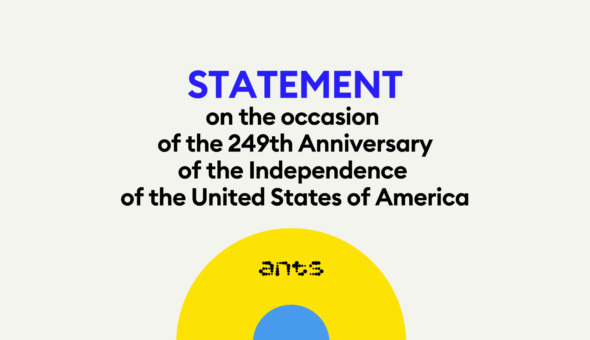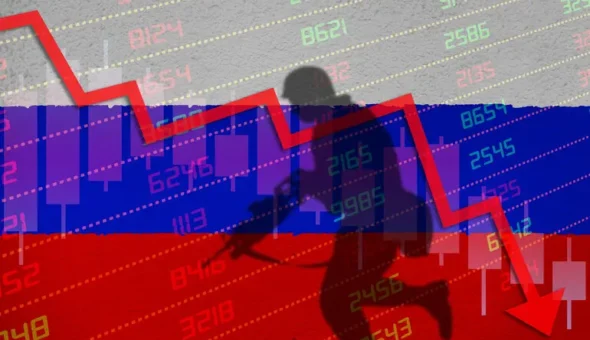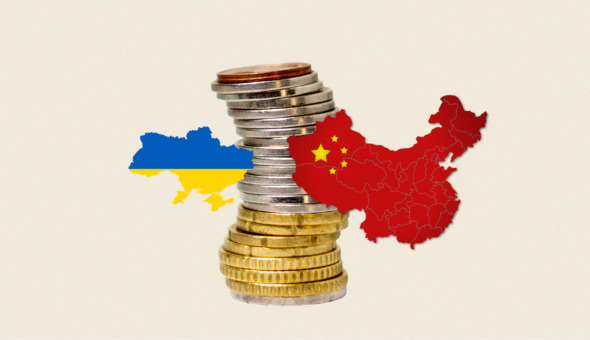
February 2022 became a turning point in the recent history of Ukraine when it applied for the status of a candidate for EU accession. However, the path of European integration for Ukraine began long before the phase of an open full-scale invasion of russia, since 2014, when the Revolution of Dignity outlined the vector of the value dimension of integration, has Ukraine became the guardian of democracy and, in fact, the boundary between the imperial world of Russia and the world of free Europe.
The process of integration, that is, the implementation of EU legislation in various sectors and industries, aims to remove barriers. It is successful reforms that open the way to the EU Single Market, and this has an immediate impact by stimulating the economy and investment. Through institutional integration based on the rule of law, the country gains access not only to the four freedoms, but also to a high level of convergence, which actually reduces the risk of armed aggression. However, what should have worked in theory did not stop the russian attack on Ukraine. What is the reason?
Looking for the culprit or drawing conclusions?
Ukraine’s movement towards the EU since 2014 cannot be called superfast, but it is worth looking at other countries that have been waiting in line for the opening of membership negotiations for years. Many European experts draw attention to the fact that Albania has been a member of the Council of Europe since 1995, a member of NATO since 2009, and a candidate for EU accession since 2014. Since then, it has been on the path to accession. Montenegro has been a member of the Council of Europe since 2007, after gaining independence in May 2006. It has been a member of NATO since 2017 and has been negotiating to join the EU since June 2012. North Macedonia has been a member of the Council of Europe since 1995, a member of NATO since March 2020, and an official candidate for EU membership since 2005. According to such calculations, Ukraine’s progress can be assessed as very good.
However, the real reason for the slow movement lies not only in the candidate countries but in the general systemic problem of the EU–the current process of accession to the EU does not inspire reforms. The reform of the assessment system, sectoral assessment is integral to the integration process, but the politics of the last decade show rather the use of bureaucratic language to hide the lack of ambitious political will. Illustratively, we can cite the example of Lithuania, Latvia, and Slovakia, which took 34 months from 2000 to 2002 to start and finish negotiations on joining the EU.
Therefore, the assessment of Ukraine’s progress cannot be considered separately from the political situation in Brussels. Granting candidate status to Ukraine was a reactive action against russia’s offensive, although it could have been a preventive measure. Has the EU leadership learned its lessons, and is the EU ready to consider Ukraine’s membership as a way to restore confidence in the current accession procedure?
7 steps to a new step: the way to open negotiations
The quick granting of candidate status to Ukraine at the meeting of the EU Council on June 23-24 opened the door for Ukraine to join the EU, but Ukraine undertook to fulfill 7 criteria before the opening of negotiations. In order to assess the Ukraine’s progress, the EU even introduced a separate procedure – an oral report. Prior to this, only a regular evaluation in a written report every year was envisaged. The report itself only assesses the fulfillment of seven criteria, not all entry criteria. A full written report on the fulfillment of the criteria is expected in October this year.
So what was new in the oral presentation?
The new form of the report also includes a certain evaluation methodology; all seven points were classified according to the following criteria:
1) lack of progress, which means that the country has not yet started to implement the priority;
2) limited progress: implementation has begun, but is still at an early stage;
3) some progress: several measures have been taken, but important measures have not yet been completed, i.e., in general, less than half of the task has been completed;
4) significant progress: important measures have been taken, and some measures have not yet been completed, although in general more than half of the tasks have been completed.
And finally, we have the category:
5) complete, which means that this step has been completed.
Ukraine received the “completed” rating for two areas: the reform of the key bodies of judicial governance, the High Council of Justice and the High Qualification Commission of Judges, as well as the adoption of key media legislation. And although this indicator is small, taking into account the five more steps that should be taken before the fall, the Commission is convinced that the dynamics are positive and progress in all steps is on schedule. It is also noted that Ukraine has made significant progress in the reform of the Constitutional Court, having adopted the necessary law in the first reading. The commission emphasizes that it will continue to closely monitor the fulfillment of this requirement and calls on the Ukrainian authorities to help ensure that the law fully complies with the recommendations of the Venice Commission.
This is the end of Ukraine’s unequivocal victories, and quite a large part of the report is focused on areas where “certain progress” has been achieved, namely the fight against corruption, the fight against money laundering, de-oligarchization and national minorities.
Some progress was noted in the anti-corruption sphere with the appointment of new heads of the Specialized Anti-Corruption Prosecutor’s Office (SAP) and the National Anti-Corruption Bureau of Ukraine (NABU). But at the same time, it is noted that the first priority is the effectiveness of these institutions and Ukraine must show a list of effective investigations, and prosecutions.
In the field of combating money laundering, Ukraine should adopt a bill on the restoration of the Financial Action Task Force (FATF), as well as continue work on bringing the legislation in line with FATF standards, for example, in areas such as virtual assets, financial investigations, or targeted financial sanctions.
As for de-oligarchization, it is noted that Ukraine has an Action Plan to reduce the influence of oligarchs, which must be effectively implemented in accordance with the recommendations of the Venice Commission.
In general, Ukraine’s progress is satisfactory, but a number of key reforms remain “uncounted”. That is why, by autumn, Ukraine should concentrate its efforts on fulfilling all the criteria and opening negotiations this year.
And what’s next? Negotiations are not a goal, but a means
The very opening of negotiations is only the beginning of the path of integration. Therefore, it is important not just to cross out the points that have been made, but also to have the political will of the EU for an ambitious pace of progress. As we can see from the various experiences of post-graduate countries, the accession process itself is not only a bureaucratic procedure for harmonizing legislation, it is, first of all, the readiness of the EU to open the door on the way to integration.
It is important for Ukraine to continue the path of effective implementation of reforms that are closely related to the multitasking challenges facing our country. Effective reconstruction is possible only along with integration, implementation of anti-corruption legislation and effective functioning of institutions, which will be able to create conditions both for foreign investors and for Ukrainian entrepreneurs to enter the EU markets. But of course, the best guarantee of investments is security, that is, Ukraine should also be a part of NATO. Given the interdependence of all processes, the tasks for the EU are also large-scale.
After all, now we are talking not only about the technical parameters of assessing the accession or the opening of negotiations, but also about the integration strategy and the EU’s ability to show leadership, a strategic vision of the European future, which is not possible without Ukraine. Time for the EU to restore confidence in the accession process. Among the challenges facing the EU are the issue of unanimous decision-making, the imbalance of decision-making among EU countries, and these problems lead to the creation of alternative formats such as the European political community proposed by Macron.
The EU has a historical responsibility to correct the mistakes of the past, when Ukraine was left in limbo, without a clear prospect of membership, and which also became one of the factors of a full-scale invasion. And even more, it is a chance for the EU to restore its geopolitical influence in the region, and finally solve the problem of accepting other countries. The key to this is Ukraine.
Kateryna Musiyenko, international relations expert of the “ANTS” Network



